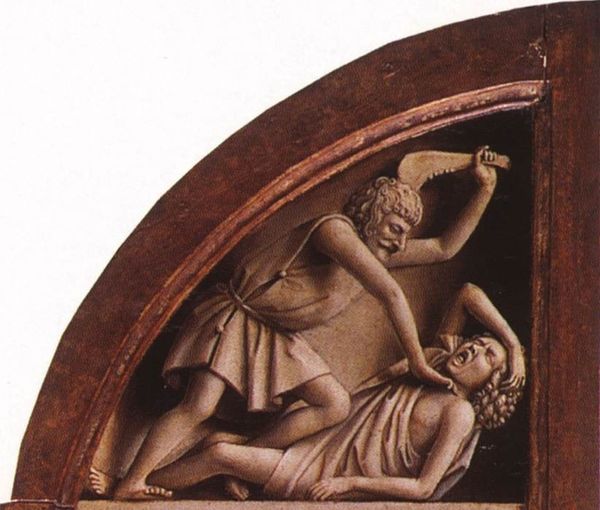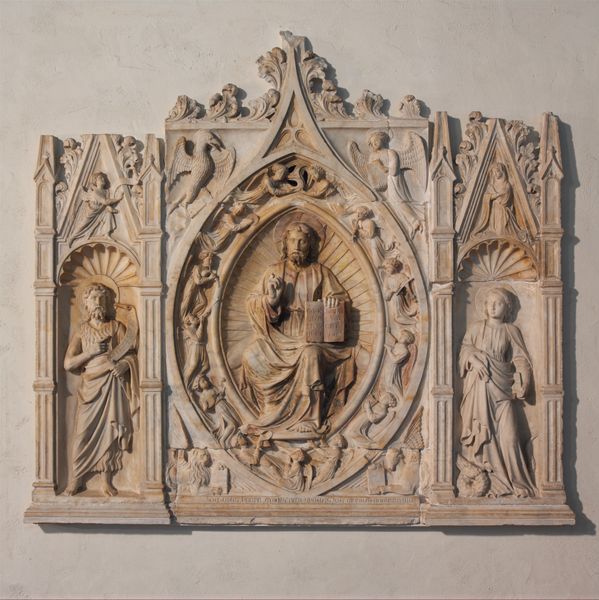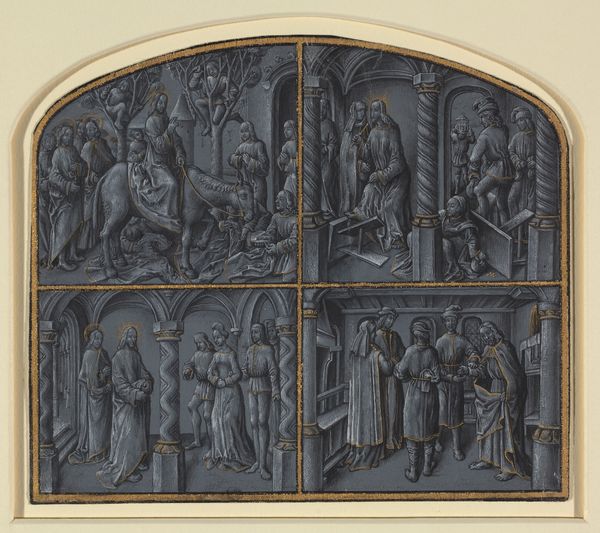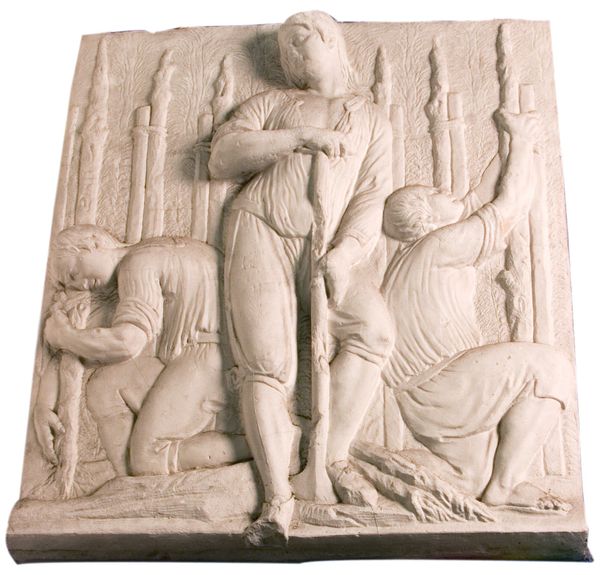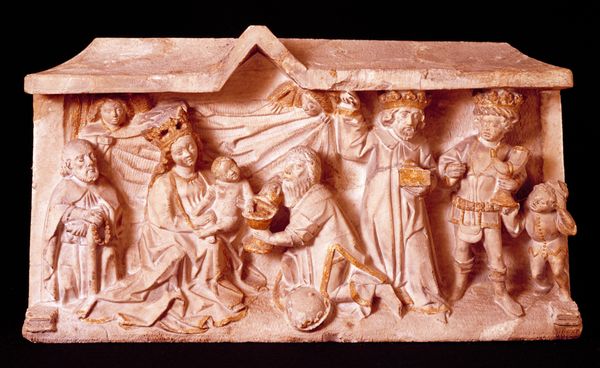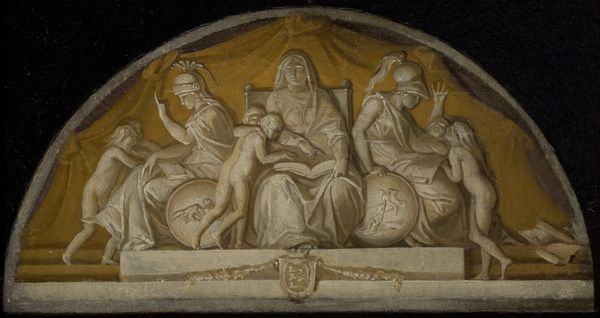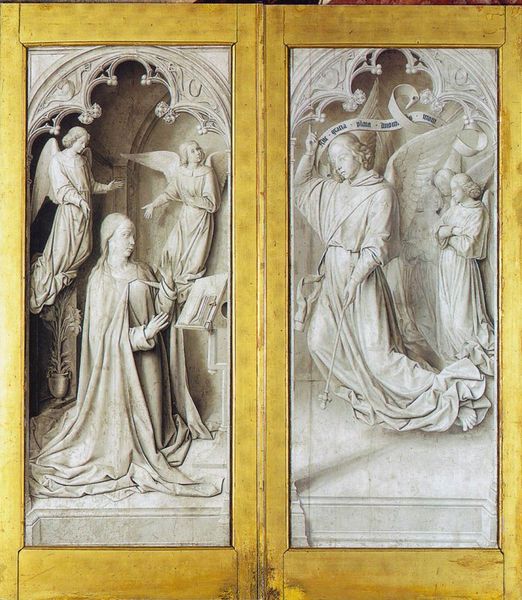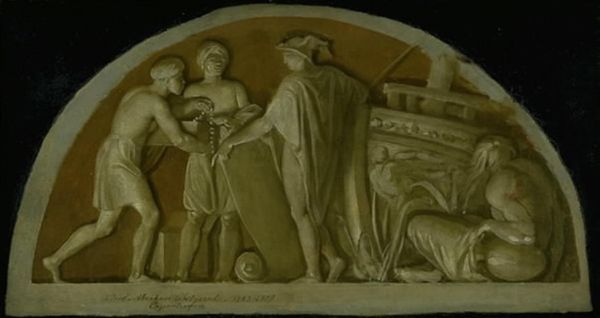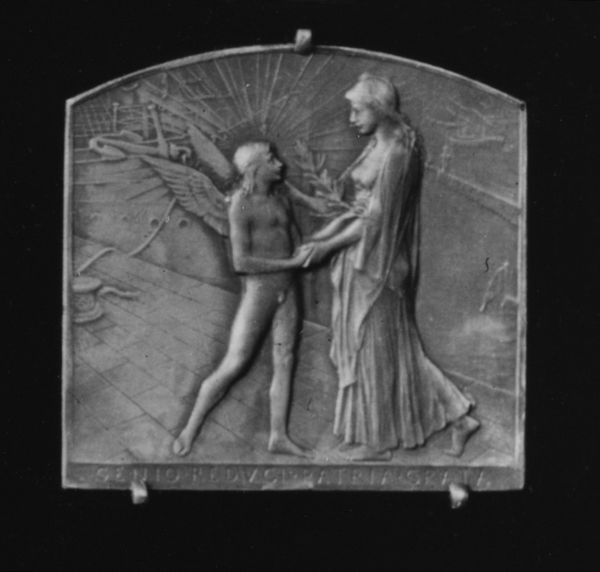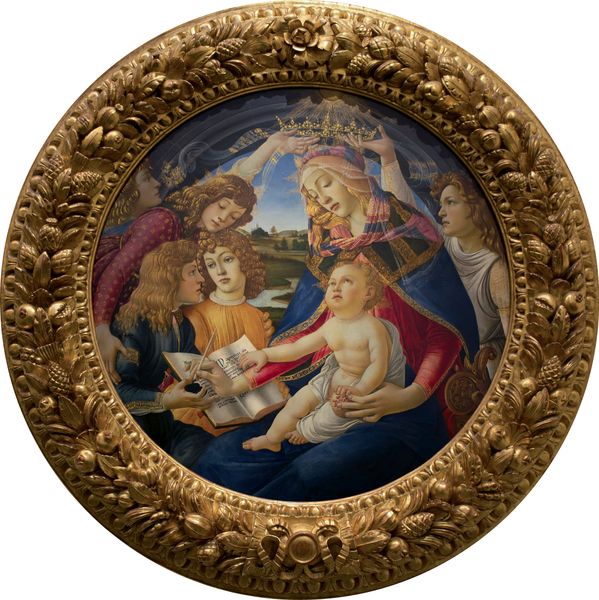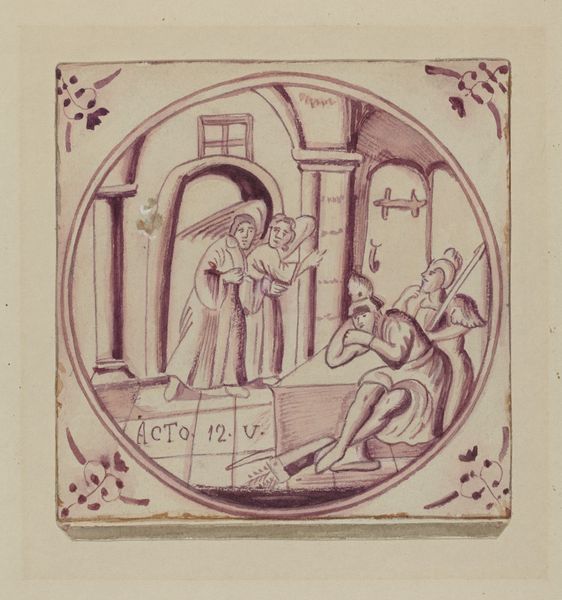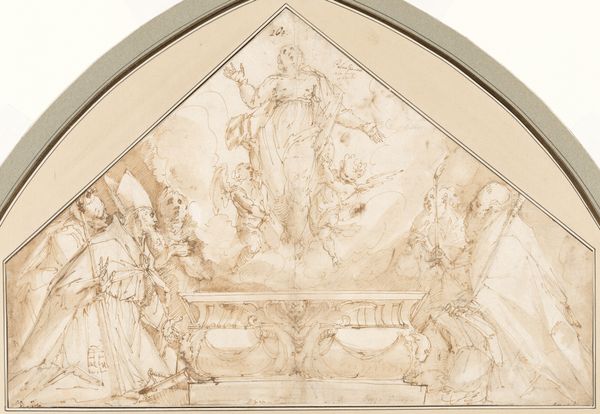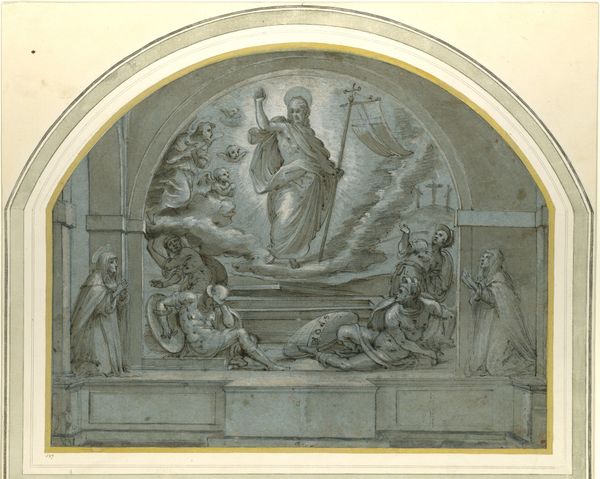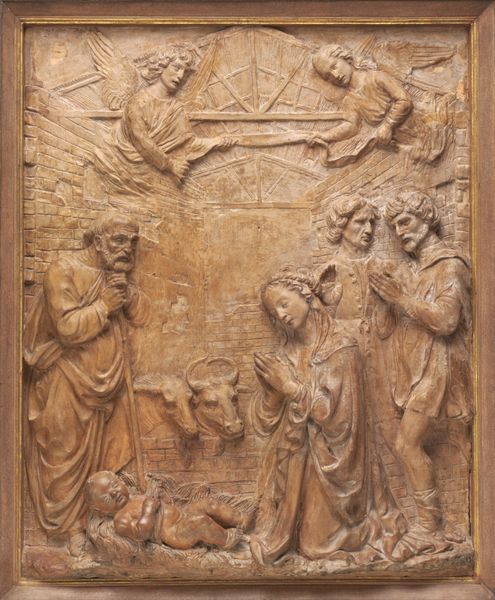
carving, relief, sculpture
#
medieval
#
carving
#
sculpture
#
relief
#
figuration
#
oil painting
#
sculpture
#
christianity
#
northern-renaissance
#
statue
Copyright: Public domain
Editor: This relief carving, "The Offerings of Cain and Abel" by Jan van Eyck, created around 1429, feels quite monumental despite its size. The figures are so expressive. How should we interpret it? Curator: It's crucial to see this work within its historical context. It's from the Ghent Altarpiece, a pivotal work of the Early Northern Renaissance. How do you think the location—a prominent church—influenced the choice of this Old Testament subject matter? Editor: I imagine the church wanted to promote a moral lesson, to tell a Bible story that has been always popular between Christian followers. Curator: Exactly. It reflects the power of the Church and the socio-political importance of religious narratives at the time. Van Eyck's detailed realism wasn't just about aesthetics; it was about making these stories tangible and believable for the public. Do you see a contrast in the brothers' presentation? Editor: Yes, Abel looks a little fresher while Cain carries more weight, even emotional. I think this sculpture makes a point about moral differences as physical burdens? Curator: Precisely. And it's not just physical; consider the implications for the viewers. How would seeing this in a public space influence their own sense of piety and societal roles? Editor: So, art wasn't just art, it was a tool for shaping social behaviour and reinforcing the church's teachings? Curator: Absolutely. It underscores the profound influence of religious institutions on art production. What was designed as decoration and enjoyment could become a tool for education, control, and manipulation. Editor: I never thought about the location influencing so deeply how and why this art was produced. It makes me think about museums, who chooses what to show and what they try to teach with it. Curator: Museums have their own cultural biases and aim to do something in their communities. It is another story to be told...
Comments
No comments
Be the first to comment and join the conversation on the ultimate creative platform.
